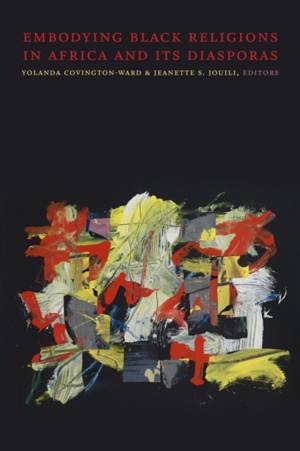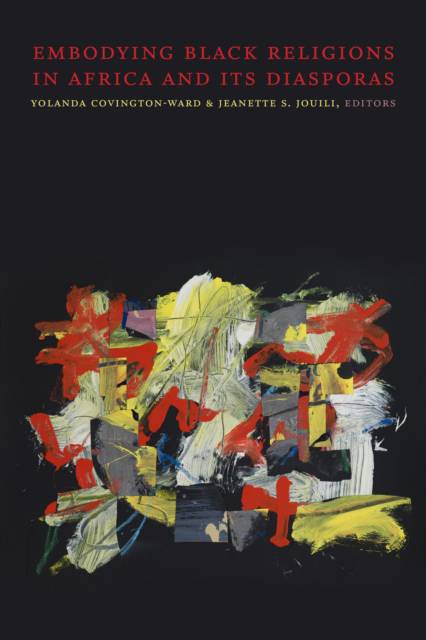
Je cadeautjes zeker op tijd in huis hebben voor de feestdagen? Kom langs in onze winkels en vind het perfecte geschenk!
- Afhalen na 1 uur in een winkel met voorraad
- Gratis thuislevering in België vanaf € 30
- Ruim aanbod met 7 miljoen producten
Je cadeautjes zeker op tijd in huis hebben voor de feestdagen? Kom langs in onze winkels en vind het perfecte geschenk!
- Afhalen na 1 uur in een winkel met voorraad
- Gratis thuislevering in België vanaf € 30
- Ruim aanbod met 7 miljoen producten
Zoeken
Embodying Black Religions in Africa and Its Diasporas
€ 164,95
+ 329 punten
Omschrijving
The contributors to Embodying Black Religions in Africa and Its Diasporas investigate the complex intersections between the body, religious expression, and the construction and transformation of social relationships and political and economic power. Among other topics, the essays examine the dynamics of religious and racial identity among Brazilian Neo-Pentecostals; the significance of cloth coverings in Islamic practice in northern Nigeria; the ethics of socially engaged hip-hop lyrics by Black Muslim artists in Britain; ritual dance performances among Mama Tchamba devotees in Togo; and how Ifá practitioners from Mexico, Colombia, Venezuela, Trinidad, and the United States join together in a shared spiritual ethnicity. From possession and spirit-induced trembling to dance, the contributors outline how embodied religious practices are central to expressing and shaping interiority and spiritual lives, national and ethnic belonging, ways of knowing and techniques of healing, and sexual and gender politics. In this way, the body is a crucial site of religiously motivated social action for people of African descent. Contributors. Rachel Cantave, Youssef Carter, N. Fadeke Castor, Yolanda Covington-Ward, Casey Golomski, Elyan Jeanine Hill, Nathanael J. Homewood, Jeanette S. Jouili, Bertin M. Louis Jr., Camee Maddox-Wingfield, Aaron Montoya, Jacob K. Olupona, Elisha P. Renne
Specificaties
Betrokkenen
- Uitgeverij:
Inhoud
- Aantal bladzijden:
- 352
- Taal:
- Engels
- Reeks:
Eigenschappen
- Productcode (EAN):
- 9781478010647
- Verschijningsdatum:
- 24/09/2021
- Uitvoering:
- Hardcover
- Formaat:
- Genaaid
- Afmetingen:
- 152 mm x 229 mm
- Gewicht:
- 639 g

Alleen bij Standaard Boekhandel
+ 329 punten op je klantenkaart van Standaard Boekhandel
Beoordelingen
We publiceren alleen reviews die voldoen aan de voorwaarden voor reviews. Bekijk onze voorwaarden voor reviews.








